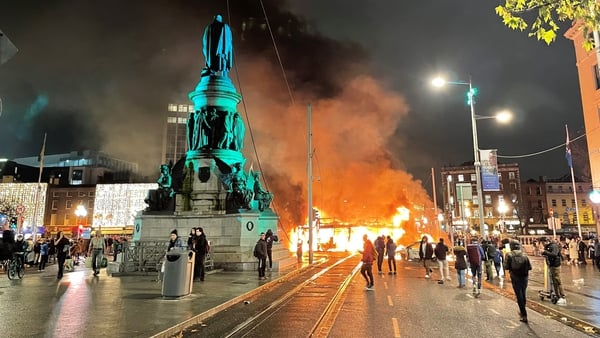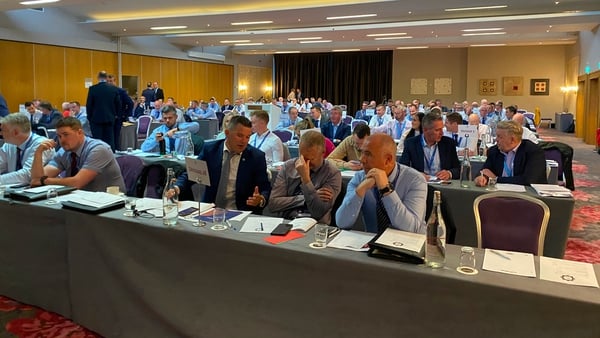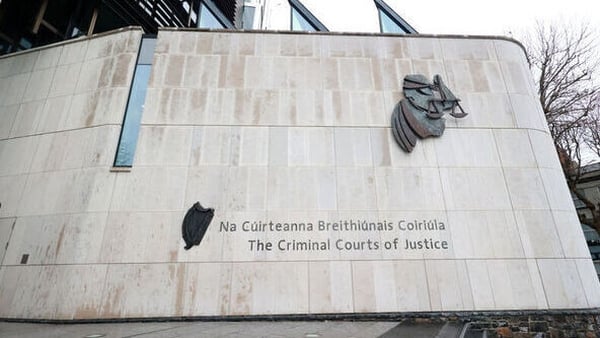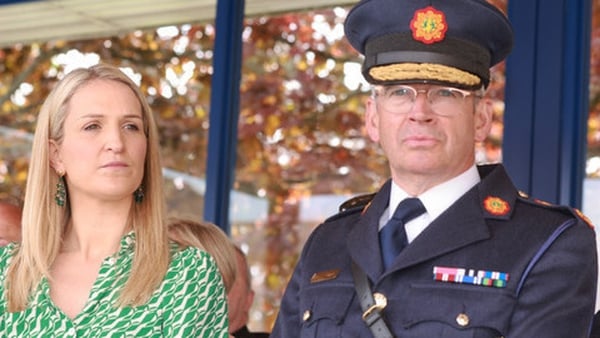The association representing garda superintendents has accused the Government of preparing to give more power to oversight bodies to deal with gardaí than An Garda Síochána has to deal with criminals.
The association is strongly critical of proposals in the forthcoming Policing and Security Bill, which it says gives "unfettered power" to the Garda Ombudsman and the Policing Authority.
The Minister for Justice and the Garda Commissioner are due to address the association's annual conference which begins in Kildare today.
Garda superintendents are deeply concerned about issues such as oversight, accommodation and proposed legislation.
The association said that, like the Garda Commissioner, it believes some of the provisions of the proposed Policing and Security Bill give unfettered powers to the Garda Ombudsman and the new Garda Board.
Association President Seamus Nolan said that gardaí also have constitutional entitlements and legal rights and the presumption of guilt must be replaced with the presumption of innocence.
However the current proposals, he said, will "literally shackle future generations of gardaí through a multiplicity of governance, purported oversight and intrusive regulation."
Garda superintendents, he said, continually listen to reactionary comments from those charged with oversight and are now asking they refrain from expressing partisan views without any semblance of impartiality or full knowledge of the facts.
"It is interesting to see how many experts we have calling us to account, treating us as their kicking practice and those self-same experts ignoring their obligations to seek realistic timelines, resourcing and welfare issues facing the organisation over whom they are keeping their watchful eyes" he said.
We need your consent to load this rte-player contentWe use rte-player to manage extra content that can set cookies on your device and collect data about your activity. Please review their details and accept them to load the content.Manage Preferences
The association is also critical of the fact that GSOC keeps referring complaints about gardaí back to superintendents to investigate and that while these investigations must be conducted within a strict timeframe, its own inquiries are not similarly constrained and therefore gardaí under investigation are left in limbo.
It said the Policing Authority seems entitled to mete out continuous criticism without support or acceptance of the limitations on policing
Supt Nolan said: "Where are the Policing Authority and the Garda Ombudsman when it comes to addressing false, malicious, vexatious allegations against An Garda Siochána?"
The association has also accused the Minister for Justice of "demeaning" its members by failing to engage with it on issues such as resources, funding and accommodation necessary to operate the new policing model, and keeping them in the "slow-no" corner.
Garda superintendents are also critical of the current protected disclosures policy because while they say they agree with such a policy in principle, they cannot accept the current situation, where they say anonymous, often ill-intended complaints are treated as protected disclosures.
This, they say, means not only superintendents but gardaí of other ranks become the subject of investigation because of faceless, nameless and unidentifiable persons.
Supt Declan McCarthy, member of the national executive committee of the association, said the Bill also gives the power of entry without warrant to authorities, which he said is not appropriate.
He said he is also concerned that "at the moment there is almost a presumption of guilt" when there is a complaint outstanding against any ranking member of the force.
Supt McCarthy also criticised "reactionary comments" made by the Policing Authority in relation to issues within the force ahead of the completion of full investigations.






